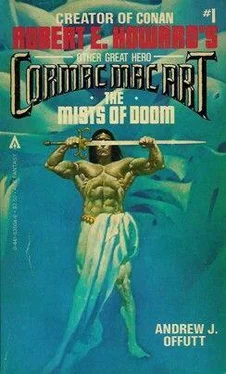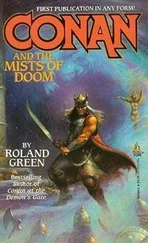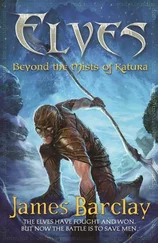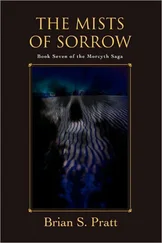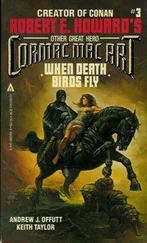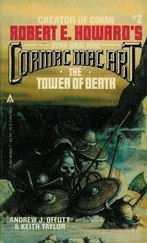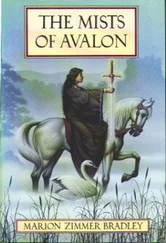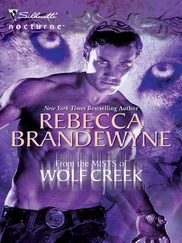Andrew Offutt - The Mists of Doom
Здесь есть возможность читать онлайн «Andrew Offutt - The Mists of Doom» весь текст электронной книги совершенно бесплатно (целиком полную версию без сокращений). В некоторых случаях можно слушать аудио, скачать через торрент в формате fb2 и присутствует краткое содержание. Жанр: Космическая фантастика, на английском языке. Описание произведения, (предисловие) а так же отзывы посетителей доступны на портале библиотеки ЛибКат.
- Название:The Mists of Doom
- Автор:
- Жанр:
- Год:неизвестен
- ISBN:нет данных
- Рейтинг книги:4 / 5. Голосов: 1
-
Избранное:Добавить в избранное
- Отзывы:
-
Ваша оценка:
- 80
- 1
- 2
- 3
- 4
- 5
The Mists of Doom: краткое содержание, описание и аннотация
Предлагаем к чтению аннотацию, описание, краткое содержание или предисловие (зависит от того, что написал сам автор книги «The Mists of Doom»). Если вы не нашли необходимую информацию о книге — напишите в комментариях, мы постараемся отыскать её.
The Mists of Doom — читать онлайн бесплатно полную книгу (весь текст) целиком
Ниже представлен текст книги, разбитый по страницам. Система сохранения места последней прочитанной страницы, позволяет с удобством читать онлайн бесплатно книгу «The Mists of Doom», без необходимости каждый раз заново искать на чём Вы остановились. Поставьте закладку, и сможете в любой момент перейти на страницу, на которой закончили чтение.
Интервал:
Закладка:
The Mists of Doom
Andrew J. Offutt
Introduction
With Gratitude
Though this novel appears as the fourth in the series, it is technically the first in that cycle of the Irish hero of the late fifth century, Cormac mac Art. Herein is chronicled all the information we have concerning Cormac’s early life, his youth, the death of his father and the orphaned youth’s employment in Leinster as warrior-and the events that led up to Cormac’s long series of adventures away from his beloved homeland; the reaver or pirate Robert E. Howard wrote of in Tigers of the Sea .
If you are discovering Cormac for the first time, this is the beginning and the best place to begin the cycle. If you’ve been with us through Tigers of the Sea and Offutt’s Sword of the Gael , The Undying Wizard , and Sign of the Moonbow , you will surely welcome this look into Cormac’s origins-including his first meeting with Samaire of Leinster.
Accounts of the later events of Cormac’s adventurous life were found and authenticated with relative ease. The stories had been passed down orally in the Irish tradition and more than one writer of the fifth through tenth centuries had written of his exploits: as commander of a crew of piratic reavers and the subsequent years as reaver with Wulfhere the Dane; of his adventures in Britain and Denmark and the little kingdom of Galicia; among the Tuatha de Danann within the Emerald Isle; of his crossing of life-paths with Arthur of Britain and with Hengist, among the first of those from oversea to carve out sword-lands in Britain to become England, of the matter of the sigil-ring of Egypt; of his perilous struggles with such sorcerers as Thulsa Doom, Tarmur Roag, Lucanor of Antioch, and others.
Some of these adventures have appeared in the books previously mentioned; others are to follow as Offutt and Zebra Books continue to present the cycle for the modern reader.
More difficult to unearth were the facts of his youth, before he became the famous reaver, bane of sorcerers, and Champion of Eirrin. The task of tracking down and assembling these accounts fell to my friend Geo. W. Proctor.
Like Howard who first discovered and began chronicling the Cormac cycle, Proctor is a Texan and a lover of high adventure, particularly heroic fantasy. His own tales of weapon-men and images are included in my anthologies of new heroic fantasy, Swords Against Darkness , and he is working on his own novels.
It was Geo. Proctor who tirelessly tracked down, along vermiculate paths leading into and through numerous sources, Macghnimhartha na Cormaic: The Youthful Deeds of Cormac. From a crumbling monastery near Cashel came the scraps of laboriously recopied-in Latin! -manuscript, Partha na Lagen , and realized that this “Partha (mac Othna) of Laigin or Leinster” was indeed Cormac, written of as his cloak-name or alias. From the musty library of an aged scholar-now deceased-living near Dublin that was Dubh-linn (and formerly Baile Atha Cliath or Ath-Cliath), came into Proctor’s hands the nigh-unreadable Longes mac Airt: the Exile of Art’s Son. In the Leinsterish archives is proudly recorded Tain Bo an Ard Riogh: The Cattle-Raid of the High-king or the Driving off of the High-king’s Kine.
Laboriously Proctor checked and cross-checked, questioned and collected, compiled and discarded, and somehow pieced together the story of a heinous plot by High-king and priest… and the story of young Cormac. His work does shame on scholars and historians (whom in truth I have caught out in errors, in my own researches-while doubtless making errors of my own).
Geo. and I were already in contact, and I am the chronicler and supposed expert. To me he sent his account-and two copies of his pages and pages of notes. Pleading gross ignorance of Gaelic, I asked him to compile it all into a sort of narrative, in outline form. (We agreed to leave out The Matter of the Queen’s Chamber, and the Story of the Twelve Picts, as being surely fanciful, apocryphal additions by later enthusiasts.)
Proctor complied, and once I had rewritten his outline I obtained his approval of that version. It was also patiently explained to me that “Ceann” is not “Sean” but simply Ken and that the “family name” of the Leinsterish royal house, Ceannselaigh , would be pronounced simply KEN-sley. He also confirmed the name “Conan”: it is very old Irish, as are Crom and indeed the word amra , which means eulogy. Howard did like his Celts-I mean, Kelts.
The volume, then, is my narrative based on an outline by Geo. W. Proctor of Tay-has, and we are all indebted to him.
Andrew J. Offutt-Kentucky, U.S.A.
Prologue:
The Walker in the Fog
Though the rain had ceased just before sundown, the clouds remained. The setting Eye of Behl rayed its gold and crimson across a sky of greys and deep slate. The spectacular effect lasted only a few minutes ere the sun was gone and the sky became a wash of slate and indigo and the absolute black of onyx. Night ruled. The imposing buildings standing aloofly apart atop the hill called Tara were become but shadows, some limned darkly against the sky, others spectrally pale.
Fog and mist were permanent inhabitants of this land, which they and the forests had owned long before the coming of the Fir Bholgs, and then the Tuatha de Danann, and finally the Celts. It crawled the ground now, so that the peasantish houses huddled so closely all about the base of the hill were as if aswim in the cold fog. Some indeed were invisible beneath their dripping roofs of wattle and sod. No women or children were abroad, and few men. Even so close past sunset, many were already abed, for wakeful life and the work of the day began with Behl’s eastward appearance each morn, when pearl and nacre displaced the dark of night and were followed by rich gold. Thus came daily the manifestation of the god of the Celts, whether they abode here in this land, or over in Gallic or Frankish lands. For not yet had the new god, him of the Jews and then of Rome on which the sun had set, usurped the ancient power of Bel, or, depending upon where he was worshiped, Baal, or Beal, or Ba’al or Behl.
This night, strangely, the fog rose up the hill among the houses of the nobles and even among the rath structures of the righ-danna , the many who in this way or that claimed kinship to the Ard-righ , the High-king. Aye, on this haunted night the fog eddied and crept even about that most noble lord’s own abode, the rig-thig .
Through it, his feet and robed legs vanishing into the ever-moving gray, walked a man who neither strode nor strolled. Hooded he was, rendered bodiless by the robe and faceless by the night. Almost silently, picking his way with a long holly staff, he moved toward his goal.
A peasant, in leggings and leathern stockings, a patched brown cloak and flapped cap of hareskin, touched his forehead when his path downward crossed that of the robed man ascending; the former was late wending homeward from the house of his lord who had spoken not complimentarily to him of the peasant’s care for his granary, for it was unpatched and the cats were hard-worked and fat from the catching of invading mice.
“Lord Druid,” the peasant said by way of greeting, and no more, and kept walking.
Nor did the druid in the hooded robe, the deep green of the forest, speak or otherwise acknowledge the respectful greeting. He but climbed on, a bottle-green phantom in the night of darkness and fog-damp and dripping eaves. His staff of holly made tiny sucking noises when he drew it up with each pace.
Читать дальшеИнтервал:
Закладка:
Похожие книги на «The Mists of Doom»
Представляем Вашему вниманию похожие книги на «The Mists of Doom» списком для выбора. Мы отобрали схожую по названию и смыслу литературу в надежде предоставить читателям больше вариантов отыскать новые, интересные, ещё непрочитанные произведения.
Обсуждение, отзывы о книге «The Mists of Doom» и просто собственные мнения читателей. Оставьте ваши комментарии, напишите, что Вы думаете о произведении, его смысле или главных героях. Укажите что конкретно понравилось, а что нет, и почему Вы так считаете.
